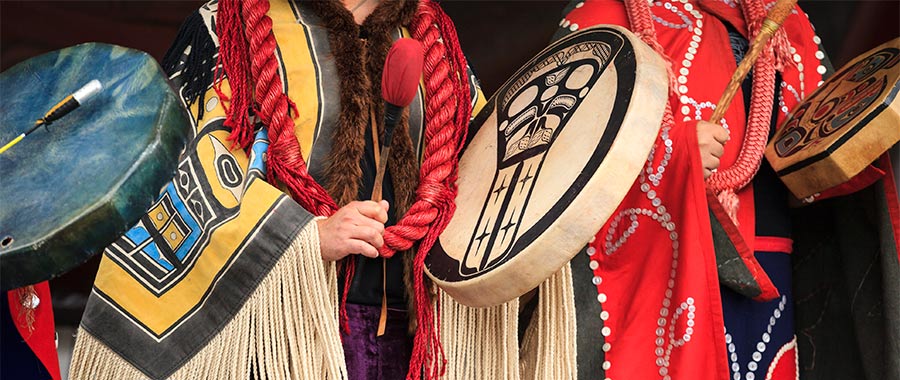The convergent themes within the Baha’i Faith and Indigenous beliefs delineate a remarkable tapestry of spirituality, elucidating the profound significance of unity in diversity. At the heart of these teachings lies an imperative that not only promotes harmony among peoples but also fosters an authentic connection to the divine. This article seeks to explore the intricate interplay between the Baha’i Faith and Indigenous beliefs, shedding light on their shared principles and the latent promises of a transformative worldview.
To commence, one must recognize the foundational tenet of the Baha’i Faith: the oneness of humanity. This concept transcends mere idealism, presenting an existential challenge to societal divisions and prejudices that have historically fragmented human connections. In this light, the Baha’i teachings serve as a clarion call to embrace a holistic vision where cultural and spiritual variances are celebrated rather than marginalized. Such an approach resonates profoundly with Indigenous paradigms, many of which prioritize interconnectedness with nature and between individuals.
Consider the Indigenous worldview, which often encompasses a deep reverence for the Earth and an acknowledgment of the intrinsic link between all living beings. The Baha’i Faith, while distinct in its theological propositions, posits a similar recognition of the unity of creation. This synergy manifests a duality between spirituality and environmental stewardship, suggesting a shared responsibility towards our planet. Indigenous beliefs frequently articulate the necessity of treating the Earth as a living entity, a sentiment echoed within Baha’i teachings emphasizing the importance of sustainable living and ecological harmony.
Moreover, the Baha’i writings espouse the idea that diversity is not only a natural facet of existence but a divine endowment that enriches the human experience. This is particularly salient in the context of Indigenous cultures, which often embody a plethora of traditions, languages, and rituals that collectively narrate the story of humanity’s relationship with the divine. The Baha’i Faith acknowledges this diversity as a means through which spiritual truths can be articulated, prompting followers to explore and appreciate the wisdom embedded in various cultural practices.
Another salient point of convergence is the emphasis on community and collective identity. Within many Indigenous cultures, the sense of belonging to a larger community is paramount. This communal ethos is echoed in the Baha’i teachings, which advocate for the establishment of global communities founded on principles of equity, justice, and mutual respect. The Baha’i approach to community-building emphasizes inclusivity, encouraging individuals from diverse backgrounds to engage in dialogue and cooperation. This synergistic collaboration cultivates an environment where varying worldviews can coalesce, ultimately leading to the realization of a unified global society.
In addition, the Baha’i Faith’s commitment to social justice finds resonance in the struggles faced by Indigenous peoples across the globe. Issues of land rights, autonomy, and cultural preservation are persistent themes in Indigenous narratives, paralleling the Baha’i assertion that systemic inequities must be addressed through collective efforts. The teachings of Baha’u’llah espouse that true justice is a requisite for global peace, thereby inviting adherents to actively participate in the dismantling of oppression and the promotion of equity. In this quest for justice, the Baha’i community endeavors to ally itself with Indigenous movements, recognizing that the liberation of one group is inextricably linked to the liberation of all.
Embarking further into the profundity of both belief systems, one encounters the pivotal role of spirituality in personal and communal developments. The Baha’i Faith emphasizes the transformative power of prayer, meditation, and spiritual education, with a focus on the inner journey of the believer. Complementarily, many Indigenous traditions underscore the significance of ritualistic practices as a means of connecting with ancestors and the spiritual realm. This shared reverence for spirituality suggests a universal quest for understanding our place in the cosmos and the overarching connection each individual holds to the divine.
Engaging with the tenets of both the Baha’i Faith and Indigenous beliefs provides an opportunity to cultivate a more profound appreciation of the sacred. The Baha’i principle of the essential oneness of religion posits that all major world religions spring from a common divine source. This notion invites reflections on how various Indigenous spiritualities can enrich the broader narrative of religious truth. Encouraging interfaith dialogue not only fosters greater understanding but also cultivates curiosity about the diverse expressions of spirituality that exist across cultures.
As one delves deeper into the symbiotic relationship between these two belief systems, it becomes evident that they both aspire to catalyze societal transformation. The Baha’i commitment to education as a means to empower individuals parallels Indigenous initiatives aimed at cultural revitalization through educational programs. Both movements advocate for a comprehensive understanding of history—acknowledging past injustices while working towards reconciliation and healing. This dedication to holistic education is foundational in nurturing a generation that champions diversity, equity, and peace.
Ultimately, the exploration of the unity found within the Baha’i Faith and Indigenous beliefs showcases a paradigm shift that is both compelling and necessary. It beckons humanity to re-evaluate entrenched narratives, challenge prevailing assumptions, and foster a sense of unity amidst diversity. Embracing this intricate relationship can propel societies towards a future that celebrates both cultural uniqueness and the shared quest for spiritual fulfillment. Through understanding and cooperation, the teachings of the Baha’i Faith and Indigenous philosophies can converge, illuminating pathways to a more harmonious and interconnected world.
